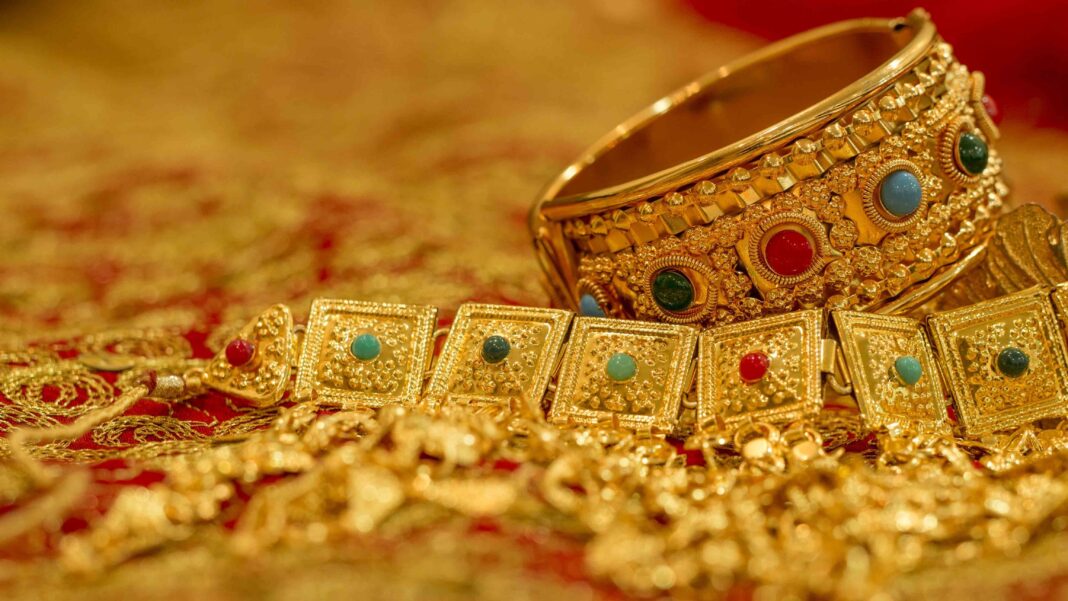Why Gold Matters in India: A Cultural and Financial Pillar
Gold is more than a metal in India. It weaves into our culture and traditions. It’s also vital for financial security. For families, gold is not just ornament. It’s a symbol of prosperity. It safeguards against hard times. Gold is a legacy through generations.
1. Cultural Importance: Beyond Just a Metal
Indian families feel deep emotional ties to gold. It holds religious and social value.
- Auspiciousness and Divinity: Gold is very sacred in Indian religions. We link it to Goddess Lakshmi. She brings wealth and prosperity. Buying gold on festivals invites good fortune. Diwali, Akshaya Tritiya, Dhanteras are key times. Temples receive gold donations.
- Weddings and Celebrations: Gold jewellery is vital in Indian weddings. It adorns the bride. It’s part of “stridhan” (woman’s wealth). Families give it as blessings and security. Gifting gold shows prestige and love. We do it during births, anniversaries, and events.
- Family Heirloom and Legacy: Gold ornaments pass down through generations. This keeps family legacies alive. It connects us to ancestors. Families preserve wealth and heritage.
- Status Symbol: Gold ownership shows wealth and status. People proudly display jewellery. This happens at ceremonies and gatherings.
- Emotional Attachment: Gold holds deep emotional meaning. It links to memories and rituals. It gives a sense of continuity. Many homes prioritize gold.
2. Financial Importance: A Trusted Investment
Cultural ties are strong, but gold also shows financial wisdom.
- Safe Haven Asset: Gold is a “safe haven” investment. It holds value during crises. Economic uncertainty often boosts gold prices. Stock market crashes make gold shine. It offers security and stability. Gold protects wealth when other investments fall.
- Example: In 2008 or during COVID-19, gold protected wealth. Stock markets dropped sharply.
- Hedge Against Inflation: Inflation reduces your money’s power. Gold historically fights inflation. Its value often rises with prices. It preserves your purchasing power.
- Liquidity: Gold is easily convertible to cash. You can sell it almost anywhere. This asset helps in emergencies. It meets immediate financial needs.
- Gold Loans: Taking a gold loan is common in India. Banks lend against gold jewellery. You get cash quickly. This helps farmers or small businesses.
- Diversification of Portfolio: Advisors recommend gold for portfolios. Its price moves differently from stocks. Gold balances risks. It reduces overall investment volatility. Gold cushions blows when other assets underperform.
- Tangible Asset: Physical gold is a real asset. You can touch and hold it. This provides security. Many Indian families prefer its tangibility.
- Store of Value: Gold holds value for centuries. Many currencies lost worth or disappeared. Gold remains a reliable wealth preserver.
- Accessibility for All: Gold is available in small forms. Coins and small ornaments are affordable. Digital gold now makes investing easier. Gold ETFs and SGBs remove storage worries.
In conclusion, gold means more than a commodity. It’s part of family identity. It plays a role in religious observance. Gold builds financial resilience. It gives emotional comfort and security.




